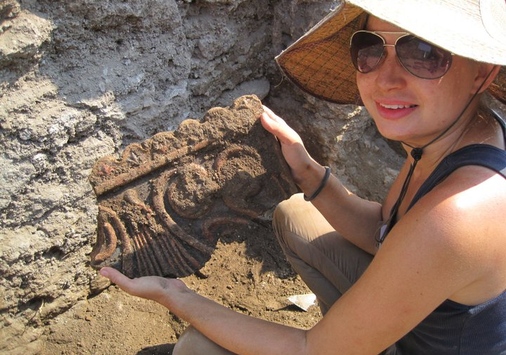A new four-part docudrama Queen Cleopatra on Netflix will star Adele James, a Black actor. The series is also being narrated by Jada Pinkett Smith, who said she wants the show to “represent Black women.”
This has reactivated a debate on Cleopatra’s racial identity, something that Professor Rebecca Futo Kennedy says is a conversation that entirely misses the point.
In a Time magazine article on the topic, Kennedy says “To ask whether someone was ’Black’ or ‘white’ is anachronistic and says more about modern political investments than attempting to understand antiquity on its own terms.”
The article quotes Kennedy:
“She could have been Greek, Macedonian, Egyptian, and Roman all at the same time,” Kennedy says. She notes that the gaps on Cleopatra’s family tree leave room for people to misinterpret indigenous Egyptian identity as Black.
“The reality is that one can say that there were ancient Egyptians we would today consider ‘Black’ in so far as they were non-Arab, non-Phoenician, Africans,” Kennedy says. She notes that references to Black-skinned Egyptians are present in ancient texts, but there is a gendered element to this: “Ideologically, women were associated with pale or ‘white’ skin and men with dark or ‘black’ skin. This is a gender division, not ethnic or modern bio-racial.”
“Kennedy says, asking if Cleopatra was Black, white, or another racial identity is the wrong question because “it suggests that these are universal and not historically contingent categories.”
She adds: “It means that we continue to have the same conversations decade after decade instead of actually learning more about how the ancient world considered its own identities.”









